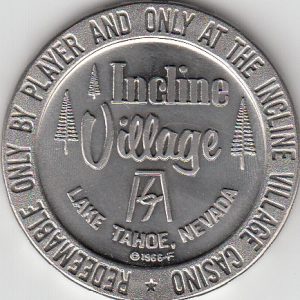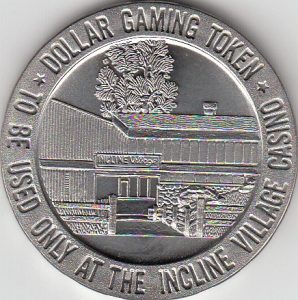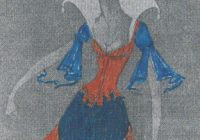|
Listen to this Gambling History blog post here
Getting your Trinity Audio player ready...
|
This is the last of a series of posts related to and leading up to the release on Dec. 6 of A Bold Gamble at Lake Tahoe: Crime and Corruption in a Casino’s Evolution by this author. The nonfiction book chronicles the often-unbelievable, conflict-filled early history of the Incline Village, Nevada-based hotel-casino that today is the Hyatt Regency Lake Tahoe Resort, Spa and Casino.
 1967
1967
The North Lake Tahoe gambling house had been running smoothly for eight months since Arthur “Art” L. Wood, developer of the Incline Village master-planned community, had assumed ownership of it earlier in the year. He’d acquired it along with the lakefront restaurant and bar components of The Sierra Tahoe in Nevada from then owner Calvin Kovens and afterward, renamed the gaming entity Incline Village Casino.
Caught in the Act
On a day in mid-October, employee Clayton P. Gatterdam was working there as a craps stickman, responsible for calling the dice rolls and moving the dice around the table. While a game was in progress, he pulled misspot dice — ones without certain numbers — a few times from a hidden pocket in his apron and swapped them for those in play to increase the player’s chance of winning. One of his dice, for instance, contained two ones, two fours and two fives.
Two members of the Nevada Gaming Control Board (NGCB), the investigative gambling regulatory arm that reports to the Nevada Gaming Commission (NGC), witnessed Gatterdam cheating! At the time, the NGCB happened to have been conducting a random, clandestine, undercover check of the Incline Village Casino.
 Gatterdam had arranged in advance with an acquaintance to collude in the swindling and split the winnings. The co-conspirator was to bet at Gatterdam’s craps table, and Gatterdam was to insert the misspot dice to facilitate one or more wins.
Gatterdam had arranged in advance with an acquaintance to collude in the swindling and split the winnings. The co-conspirator was to bet at Gatterdam’s craps table, and Gatterdam was to insert the misspot dice to facilitate one or more wins.
“[We was] going to try to put the dice in and take the place off, shoot the bankroll. We was going to try to beat the house,” Gatterdam said in his statement to Wood’s attorney. He also admitted to having been a “crossroader,”* or cheater, for the previous 20 years. (About 1.5 years later, Gatterdam again would be caught using misspot dice but in London, England.)
Protocol Followed
Consequently, the NGCB closed the Incline Village Casino — standard procedure — and filed a formal complaint against its operators, Wood, who owned 90 percent, and Benjamin “Benny” Lassoff, the bartender there who owned 10 percent. Neither of them had been on the premises when the trickery occurred.
The NGCB recommended the NGC revoke Wood and Lassoff’s gambling licenses. That’s just what it did; it pulled them for a year.
“These procedures were established for two purposes, to protect players against cheating and to protect the reputation of the state,” stated an editorial published in the Las Vegas Sun (Nov. 3, 1967). “Should it ever become established that the state allowed a cheating operation to continue one minute after irregularities are detected or even strongly suspicioned, the fat’s in the fire for sure and there’ll be a field day for the ever-ready critics of our major industry.”
Business Left Hanging
Wood pleaded with the NGC to let him keep his license, saying he’d do whatever it would take. No dice.
“I think this thing was handled unfairly,” Wood said. “But [the NGC] is the boss” (Nevada State Journal, Dec. 5, 1967).
Unable to run the casino, Wood sought to lease or sell his majority interest in it and even unload the restaurant and bar components he owned as well, if necessary.
—————-
*A crossroader is a casino cheater; the term, which originated in the Old West, denoted someone who practiced their trickery at saloons located at crossroads.





